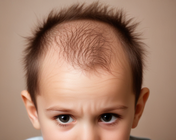Child-Friendly Dentistry Services in Chicago Loop: What Parents Need to Know
 Reports reveal that children experience dental anxiety even before their first visit to the dentist. This simple statistic highlights how crucial it is for parents to choose a dental practice that understands and nurtures young patients. Creating positive early experiences with oral care can influence a child’s lifelong relationship with dental health. In Chicago Loop, parents are fortunate to have access to a growing number of family-oriented dental practices designed to meet the unique needs of children.
Reports reveal that children experience dental anxiety even before their first visit to the dentist. This simple statistic highlights how crucial it is for parents to choose a dental practice that understands and nurtures young patients. Creating positive early experiences with oral care can influence a child’s lifelong relationship with dental health. In Chicago Loop, parents are fortunate to have access to a growing number of family-oriented dental practices designed to meet the unique needs of children.
Parents seeking a welcoming and stress-free environment for their children can turn to Chicago loop dentistry services. These services are specifically crafted to accommodate young patients with gentle care, colorful offices, and child-friendly staff. For families navigating the busy downtown area, having a nearby dentist who specializes in pediatric care can make all the difference. With a thoughtful approach, these practices help kids feel safe, understood, and even excited about their check-ups.
Understanding a Child’s Needs
Children have unique dental needs that require a specialized approach. Their teeth are still developing, and preventive care at an early stage can save them from future discomfort. Pediatric dentists focus on more than just cleaning teeth; they educate children and parents about brushing, flossing, and healthy eating habits. By explaining procedures in simple terms, they reduce fear and build trust.
Another benefit of choosing a child-friendly dentist is the emphasis on preventive check-ups. Regular visits help identify cavities early, monitor jaw development, and address issues like thumb-sucking or grinding before they become serious. This proactive style of care reassures parents and keeps children on the path to healthy smiles.
Easing Dental Anxiety
One of the most common challenges parents face is easing their child’s fear of the dentist. Many Chicago Loop practices now use techniques that make visits less intimidating. Warm greetings, playful decorations, and gentle explanations help children relax. Some practices even offer small rewards or stickers after appointments to celebrate their bravery.
Parents can also take steps at home to reduce anxiety before an appointment. Talking positively about the dentist, reading books about dental visits, and practicing at-home “pretend” check-ups can make the experience feel familiar. A calm parent often equals a calm child, so modeling confidence during the visit can make a big impact.
Choosing the Right Practice
Selecting the right dentist in the Chicago Loop area goes beyond checking credentials. Parents should look for practices that openly welcome children and create a family-friendly atmosphere. Offices with bright waiting rooms, child-sized dental chairs, and patient education materials designed for kids often signal a supportive environment. Reading online reviews and visiting the practice beforehand can also help parents feel more confident in their choice.
Communication between parents and staff is equally important. A good pediatric dentist will listen to concerns, explain treatment plans in simple language, and include parents in every decision. This partnership builds trust and helps ensure children receive consistent care tailored to their individual needs.
Why Location Matters
Convenience can be a deciding factor for busy parents. Many families in the Chicago Loop juggle work, school, and extracurricular activities. Having a trusted dental office nearby can save time and reduce stress. Quick access also makes it easier to schedule emergency visits if a child experiences a sudden toothache or chipped tooth.
Teaching Lifelong Habits
Pediatric dental visits are not just about treating problems—they are about building habits. When children learn proper brushing and flossing from a friendly professional, they are more likely to stick with those habits as they grow. Regular praise from a dentist can also boost a child’s confidence and make them proud of their healthy smile.
Some practices even offer fun educational programs or games during appointments. These activities teach kids about sugar intake, tooth-friendly snacks, and why routine visits are essential. This interactive approach helps children take ownership of their oral health at an early age.
READ ALSO: Building Trust with the Birch Dental Group Broadway, What Parents Should Know
Conclusion
Parents play a vital role in shaping their child’s dental journey. By choosing child-friendly care and maintaining a positive attitude about oral health, they set the stage for healthy smiles into adulthood. Families who rely on Chicago loop dentistry services find that the right environment can turn an anxious appointment into a pleasant memory. With supportive staff, preventive care, and a welcoming atmosphere, kids can grow up seeing dental visits as a positive, even exciting part of life.


 Friendliness to families: Clinics that treat children in a calm manner and mainly in soft words.
Friendliness to families: Clinics that treat children in a calm manner and mainly in soft words.

 Teenagers often feel immense pressure to perform better in sports or achieve a certain body image. Social media and peer influence can exacerbate these insecurities, making shortcuts like steroids seem appealing. They may view these substances as a quick fix to build muscle, enhance performance, or improve their appearance.
Teenagers often feel immense pressure to perform better in sports or achieve a certain body image. Social media and peer influence can exacerbate these insecurities, making shortcuts like steroids seem appealing. They may view these substances as a quick fix to build muscle, enhance performance, or improve their appearance. Explaining to younger kids should be simple. Consider logistics like the other parent’s contact information and the child’s residence. Teens may want more room and specifics to engage with feelings. Be cool and honest when answering questions.
Explaining to younger kids should be simple. Consider logistics like the other parent’s contact information and the child’s residence. Teens may want more room and specifics to engage with feelings. Be cool and honest when answering questions.












 Emergencies and critical incidents are things no one wants to think about, but the reality is they can happen when we least expect it. Being prepared is key, from natural disasters like hurricanes and earthquakes to more personal situations like a medical emergency or car accident.
Emergencies and critical incidents are things no one wants to think about, but the reality is they can happen when we least expect it. Being prepared is key, from natural disasters like hurricanes and earthquakes to more personal situations like a medical emergency or car accident. 



 Developing good dental habits early is crucial for children, and as a parent, you
Developing good dental habits early is crucial for children, and as a parent, you 

 Teach your children not to share their private things with other people from a very young age. You also need to take care of your own cleanliness to avoid infections.
Teach your children not to share their private things with other people from a very young age. You also need to take care of your own cleanliness to avoid infections. 

